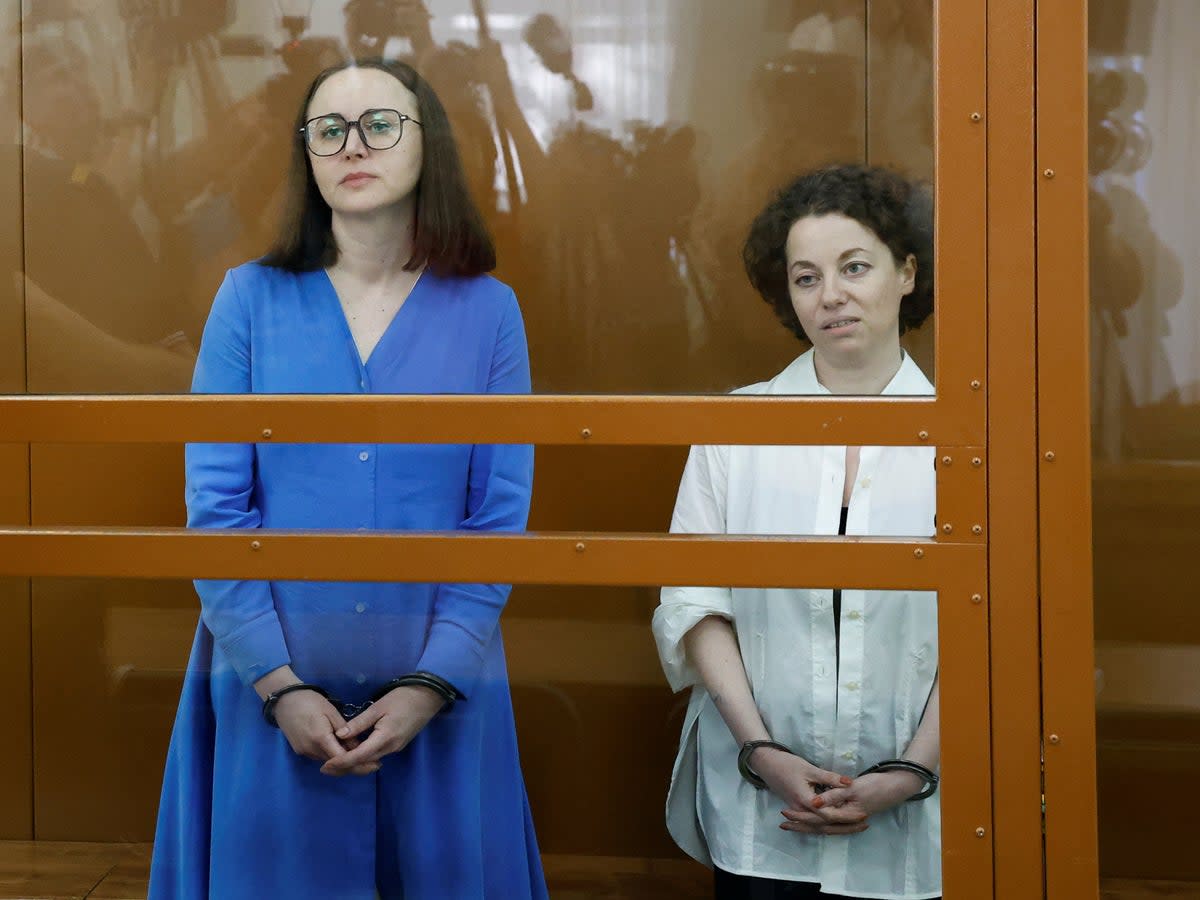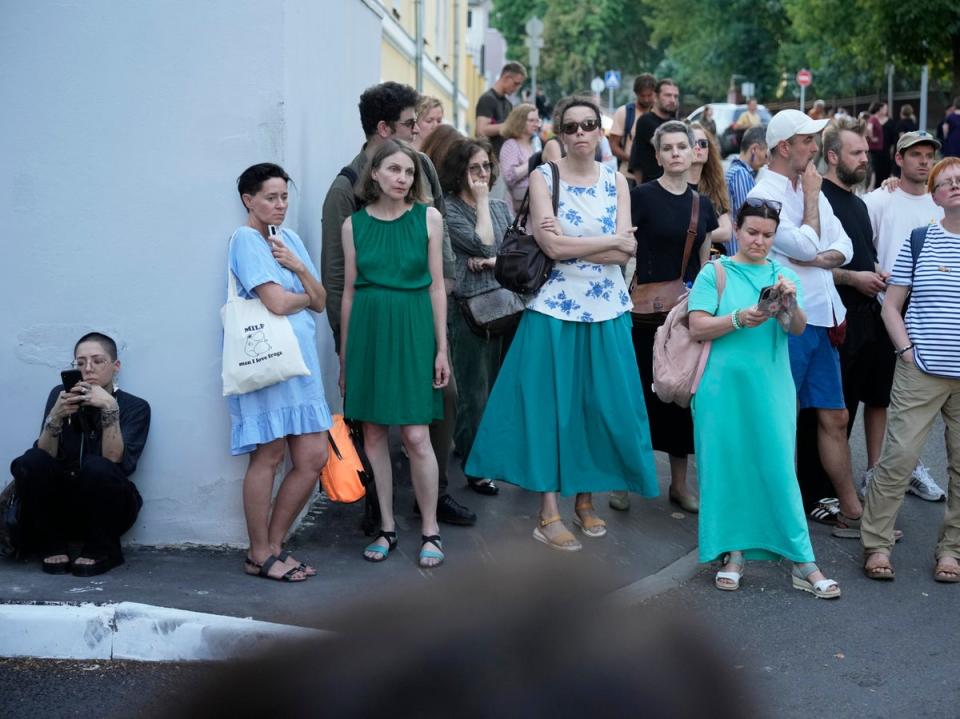Russian court sends writer and director of Isis brides play to jail for ‘justifying terrorism’

A military court in Moscow convicted a Russian playwright and a theatre director for “justifying terrorism” in a play about Isis brides and sentenced them to six years in prison each.
Svetlana Petrichuk and Yevgenia Berkovich were sentenced for producing a play called The Brave Falcon Finist that is inspired by Russian women who went to Syria in the mid-2010s to marry fighters of the terror group.
Petrichuk, 44, and Berkovich, 39, intend to appeal their conviction.
Their trial, which was partially held behind closed doors, has raised concerns about artistic freedom in the country.
Petrichuk and Berkovich were charged with justifying terrorism – a criminal offence carrying a penalty of up to seven years in prison – with prosecutors arguing that their play portrayed Isis favourably.
The artists have denied the allegation. Berkovich said at one hearing she staged the play to prevent terrorism, a claim echoed by Petriychuk, who said she wrote it to prevent events like those depicted in the production.
“I have absolutely no idea what this selection of words has to do with me,” Berkovich was quoted as saying by Russian news agency RBC. “I have never shared any forms of Islam, radical or otherwise.”
Their lawyers said the play was supported by the Russian culture ministry and even won the Golden Mask, Russia’s most prestigious theatre award.
Ksenia Karpinskaya, one of the lawyers, called the conviction “absolutely illegal” and “unfair” and said they would appeal it, but admitted that there was “little hope”.

The play was read to inmates of a women’s prison in Siberia in 2019 and the state penitentiary service praised it on their website, according to Petriychuk’s lawyer.
An open letter supporting the artists, started by the Novaya Gazeta newspaper after their arrest, has garnered more than 16,000 signatures so far.
The support group accompanies the paddy wagon with Yevgenia Berkovich and Svetlana Petryichuk chanting "Zhenya! Svet! ".
The director and playwright were sentenced to six years in prison for the play "Finist the Bright Falcon". pic.twitter.com/RoEbRvNHf4— Sota News (@sotanews) July 8, 2024
The play, the letter says, “carries an absolutely clear anti-terrorist sentiment”.
Besides their imprisonment, the two women are banned from managing websites for three years after their release. They have been detained since May 2023 and will serve their sentences in a penal colony.
Their supporters, including notable Russian artists, suggest the prosecution could be linked to Berkovich’s anti-war poetry.
Russia’s government has reportedly increased pressure on its artistic community since the 2022 invasion of Ukraine.


